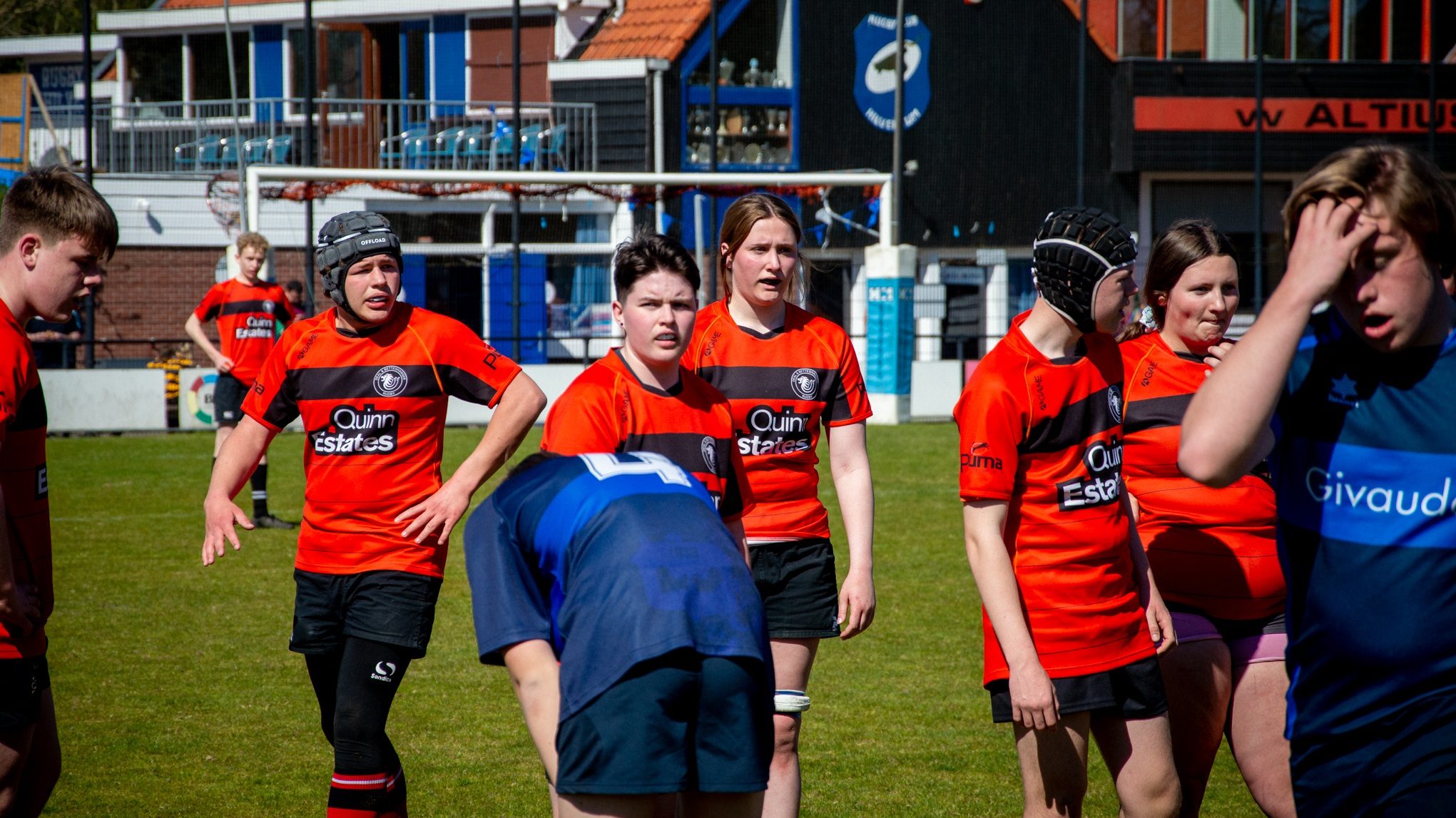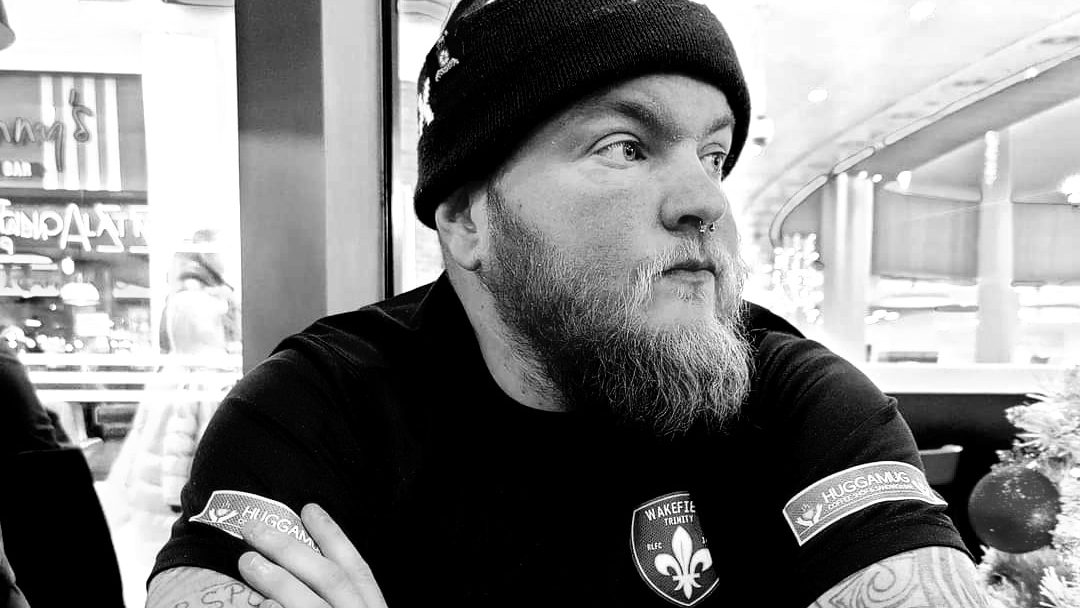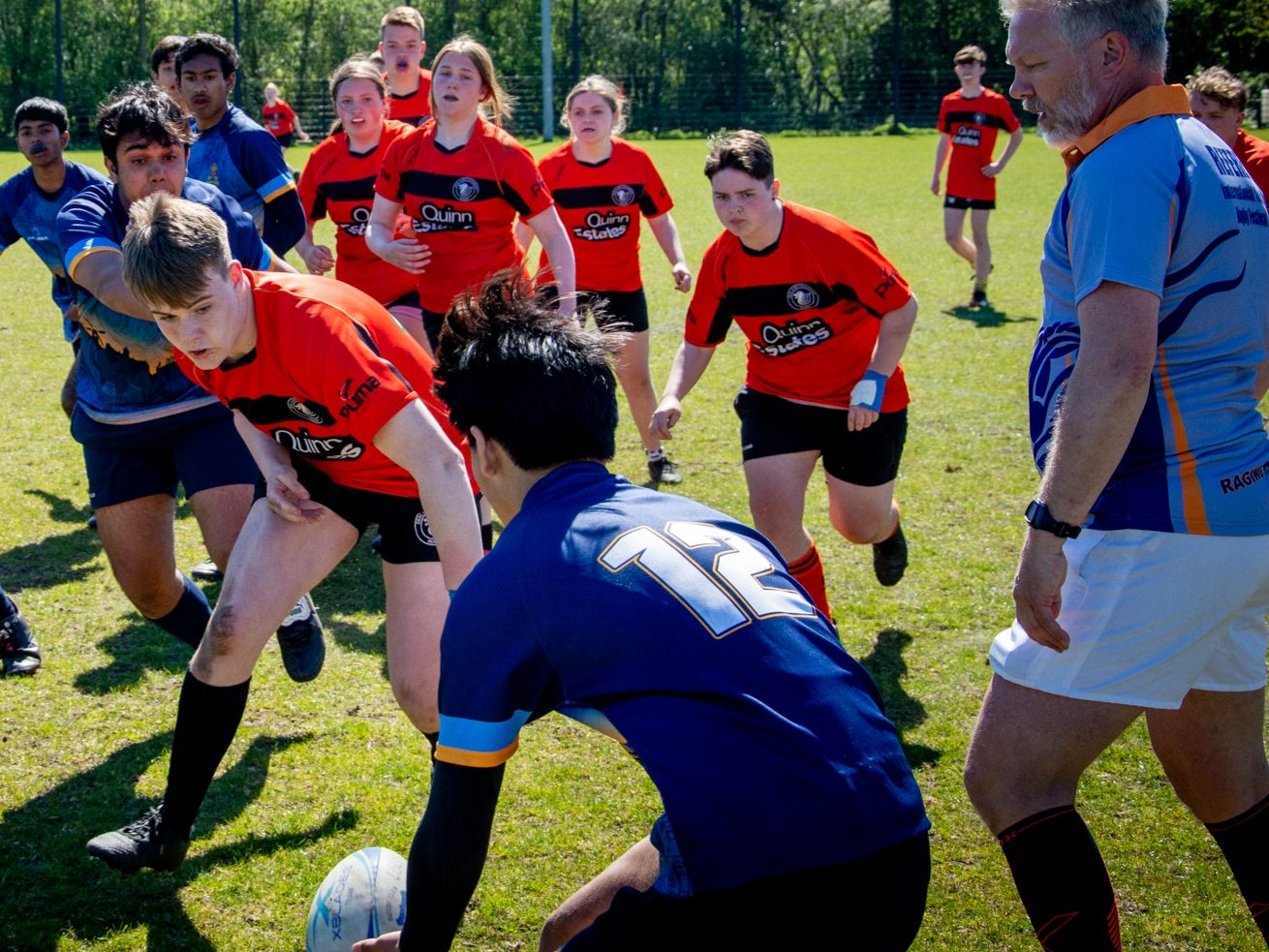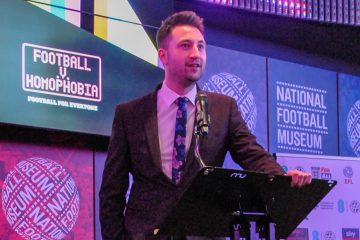‘Trans kids just want to play sport the same as everyone else’: How a new pilot scheme is offering hope
Amid a surge in restrictive policies on trans athletes issued by international federations, many young people who are trans are simply trying to find their place in sports; Mermaids’ Verity Smith discusses a pioneering new inclusion training programme that helps clubs and organisations break down participation barriers…

Last week, transgender women were banned from playing in international women’s rugby league matches “until further research is completed”.
Before that, FINA (International Swimming Federation) banned trans women who had not completed their transition by the age of 12 from competing in elite women’s categories.
A lot of the language used in these bans or restrictions is clinical. Detached. It’s always about “fairness”, and it’s about the “safety” of female athletes.
But in these policies, there is nothing about the fairness of banning an entire subset of people from the sport category with which they align. Nothing about the safety of trans athletes.
They are written about in a style more akin to monsters or wild animals; the subtext seems to suggest that these policies are put in place to prevent a female athlete from the threat that would be posed by a man pretending to be a woman.
Two weeks ago, I sat down with Verity Smith (he/him), a former player in elite women’s rugby who, due to an injury suffered on the pitch, is now in a wheelchair. His spinal cord was crushed in a tackle made by a cisgender woman.
“As far as I know,” says Smith, “I am the only transgender rugby player to be involved in that kind of injury on the pitch, and I was the one injured.
“I’m in a wheelchair for the rest of my life, but that’s never spoken about.”

Smith, who now plays wheelchair rugby league for one of the top teams in the country, also works for Mermaids, a charity that supports trans and gender non-conforming young people in the UK.
He is their Trans Inclusion in Sports Youth Officer, and has been instrumental in a pilot scheme to increase trans awareness and acceptance for youth sports teams. “If you take the word ‘trans’ off the front [of trans youth], then you just have children that want to learn to play a sport the same as everyone else.”
Smith’s coming out is better known than most. He was outed on a rugby pitch, and has been featured in several transphobic newspaper articles, some even mistaking him for a trans woman.

He was prevented from using his own team’s changing facilities, or bathrooms; he was assaulted on the pitch; and he was told he was a danger to women and that he shouldn’t be allowed to play, despite having approval from the board of women’s rugby to continue playing.
He talks at length about the presence of trans people in a sport that is now trying to push them away. During a decision taken by World Rugby to ban trans women from the elite women’s rugby union game, he was the only trans player there, and he wasn’t permitted to speak; just observe.
“There are approximately 37,000 women rugby union players,” he tells me. “And of that number, only two are trans women. In women’s rugby league, it’s thought to be only eight trans players across 15 countries.”
Meanwhile, in the US, a raft of legislation is limiting trans youth from accessing sports. Recently, a bill was passed in Ohio that seeks to ban trans girls from high school and college athletics. There is thought to be only one trans girl in the entire state participating in athletics in 2021-22.
“We just want to play sport,” Smith says. “We don’t transition to win medals, we do it to be ourselves and to be happy in the sport we love.”
Before coming out, Smith felt he had to choose between the sport he had given half his life to, and his gender. There is still a way to go for trans people in rugby, but that path at least has diverged for one person.
Miles Pitcher is a trans teenager who lives in Dover, playing women’s rugby and attending a single-gender school. While Smith’s coming out was plagued with controversy and smear campaigns, Pitcher’s story tells us that for some, perhaps things are improving.
He came out when he was 13 to his friends, 14 to his family, and despite attending a girls’ school, he says he has had no issues living as himself. Well, except for the school’s P.E. kit.
Pitcher single-handedly campaigned to get a gender-neutral P.E. kit for his school, swapping a skort (a skirt-short hybrid) for either trousers or shorts, regardless of a student’s gender identity. Impressive work for someone who had yet to turn 16.
“Originally, it was just shorts,” Pitcher says, on his gender-neutral campaign. “But the school complained that too many people rolled the legs up, and so when I came back after half term, they were just gone.
“So I emailed my head of year, and the head of the P.E. department, and it was a good few days of emails, and I just said that the skirt was singling people out, either because of their identity, or even just body issues.
“They apologised, and then I saw an email to the whole school saying that as long as they’re in the school colours, you can wear shorts or trousers or whatever makes you comfortable.”

Overall though, Pitcher says there have been no problems, beyond “some weird looks at first” or some confusion about why he continues to play on the girls’ team. “People have been really accepting,” he says, and when asked what he would say to someone worried about choosing between their identity and their sport, he acknowledges that it can be scary, but that there are resources to give you confidence and a safe space to play.
“Don’t let yourself be held back from playing because of what your gender identity is.”
The stories of both Smith and Pitcher are important to tell. Trans women in sports are at the forefront of trans stories right now, but trans men are also struggling. That’s partly what Smith’s work with the Yorkshire Sport Foundation is for – its trans inclusion training programme is being rolled out over the next few months.
The Yorkshire Sport Foundation covers South and West Yorkshire, and focuses heavily on the wellbeing of children when it comes to sports, and especially recently, tackling inequalities through sports.
“Sixty percent of LGBTQ+ people believe there are inequalities within sport and physical activity,” says Darren Huart, the Development Manager for Children and Young People at YSF.

“What we want to do is create a conversation, create the training, create knowledge and the opportunities for young people to go to sporting establishments or gyms or whatever it may be, and feel welcomed and safe, because everyone has the right to be active.”
What’s important about this training is that it is focused exclusively on cisgender people learning about trans people. It’s not about teaching trans people how to deal with, for example, bullying, or intolerance. It’s about teaching cis people that trans people – and especially trans children – just want to come and play sports like everyone else.
“The first part is trans 101,” says Smith about the project. “Find out who the trans community are, what their needs are, and what it means to be trans.
“The second part is how do we then combine that with the sport, whether we’re looking at the Equality Act, data protection, changing facilities, all sorts of things.”
Smith also talks about some policies he has seen where trans youth are required to have a GRC [Gender Recognition Certificate] by the age of 16. It is impossible to get a GRC under the age of 18, so these kinds of policies essentially ban trans teenagers from playing organised sports.
“It’s about making sure these young kids have somewhere that they can go, where it’s not going to be pulled out from under them, and can support them and their mental health. They just need the opportunity to find their place.”
Smith’s role in Mermaids has changed lives for some trans youth. It’s saved lives. He’s had phone calls and emails from trans teenagers thanking him for his support. He’s had conversations with parents that have thanked him for saving their child’s life.
“If I can support one person in sport that doesn’t have to go through the life I’ve been through, it’s worth it.”
The trans inclusion pilot training scheme is available to grassroots clubs and teams in South and West Yorkshire as well as national governing bodies, and is being delivered between May and December 2022. If successful, the pilot may be extended beyond Yorkshire.
To learn more about the pilot scheme, contact Mermaids.
Sports Media LGBT+ is a network, advocacy, and consultancy group that is helping to build a community of LGBTQ+ people and allies in sport. We’re also a digital publisher. Learn more about us here.
We’re interested in your news and stories. Share with us and tap into a worldwide audience through our Google News affiliate website and our popular social channels with over 10,000 followers. Contact us to discuss how we can help you.


